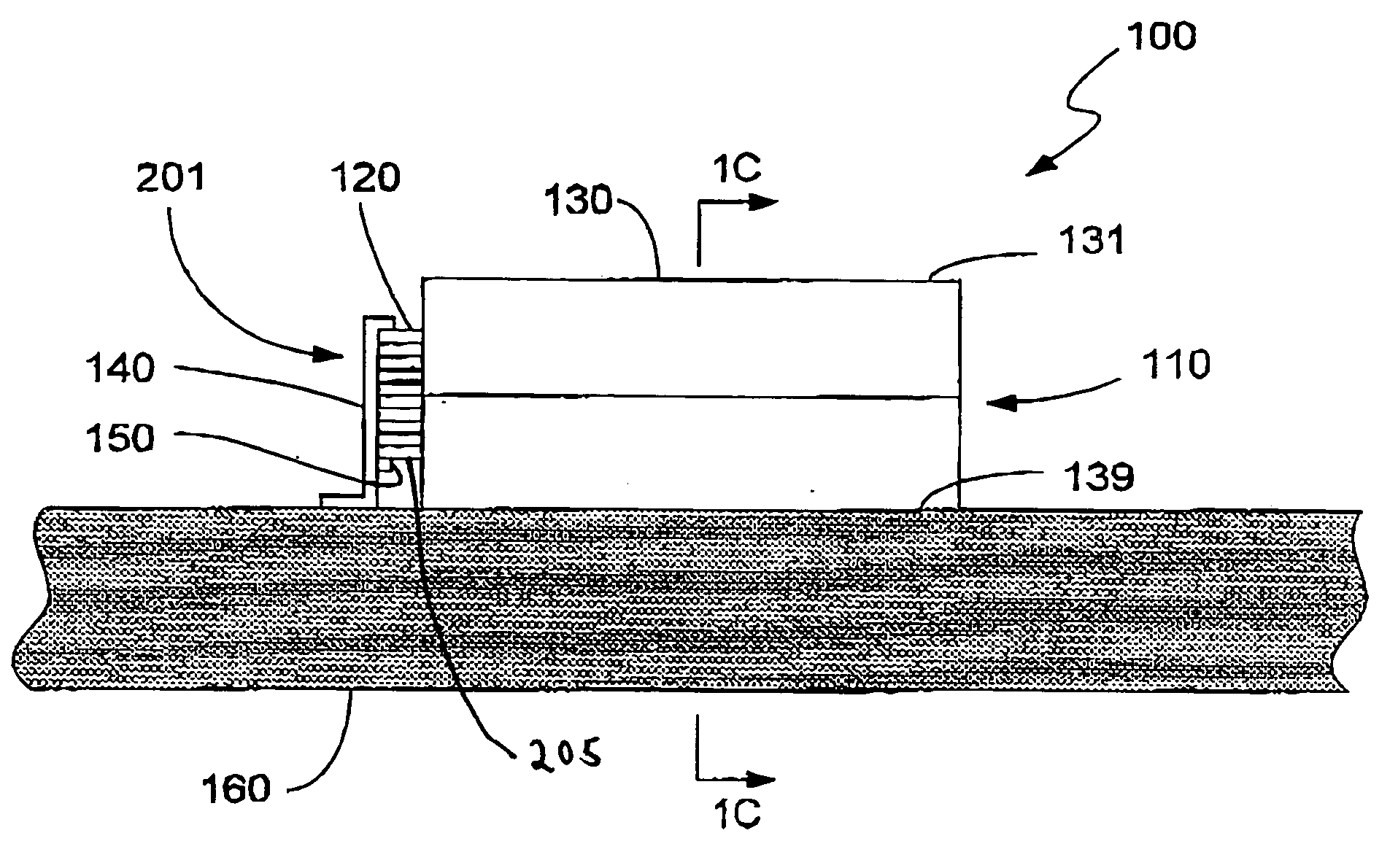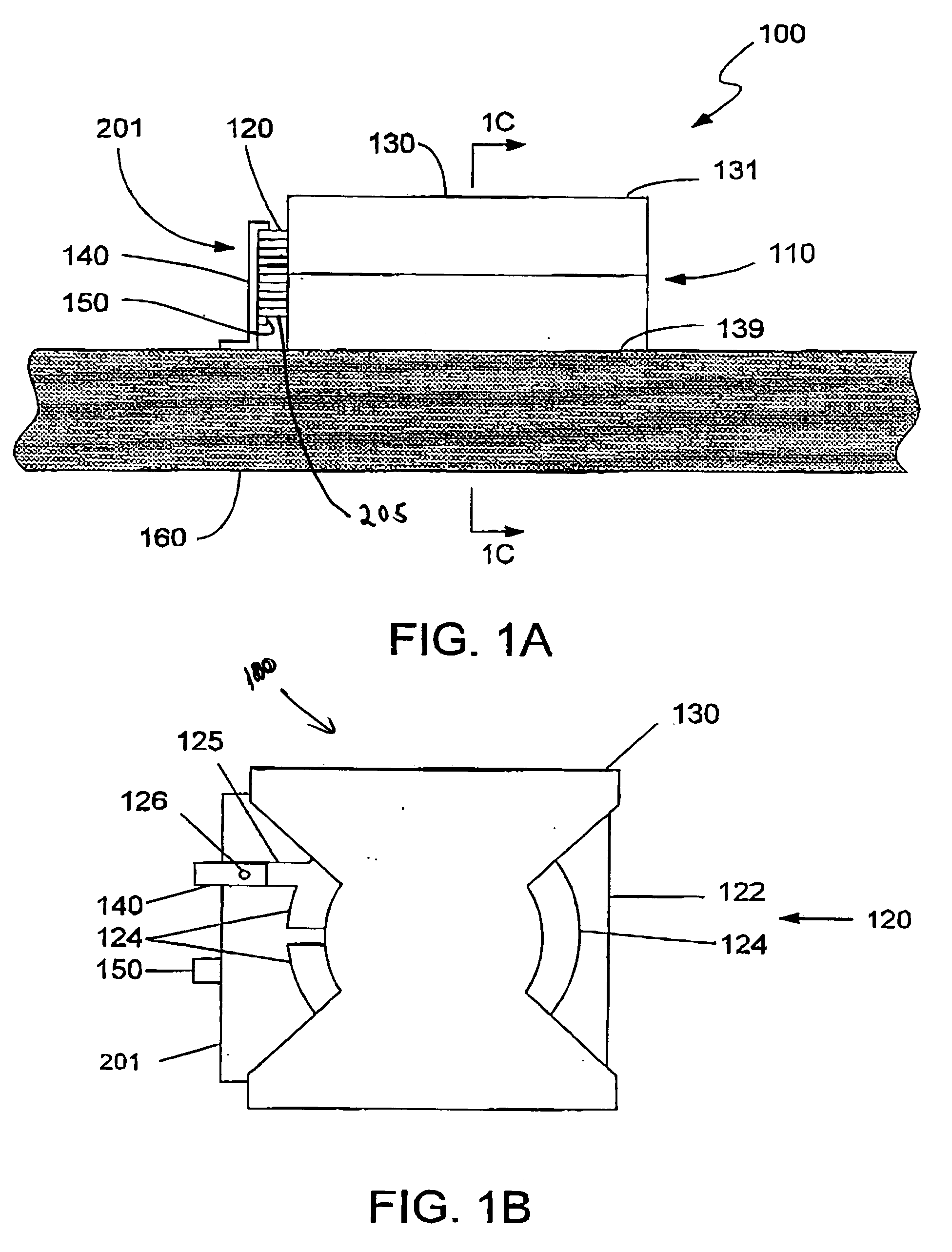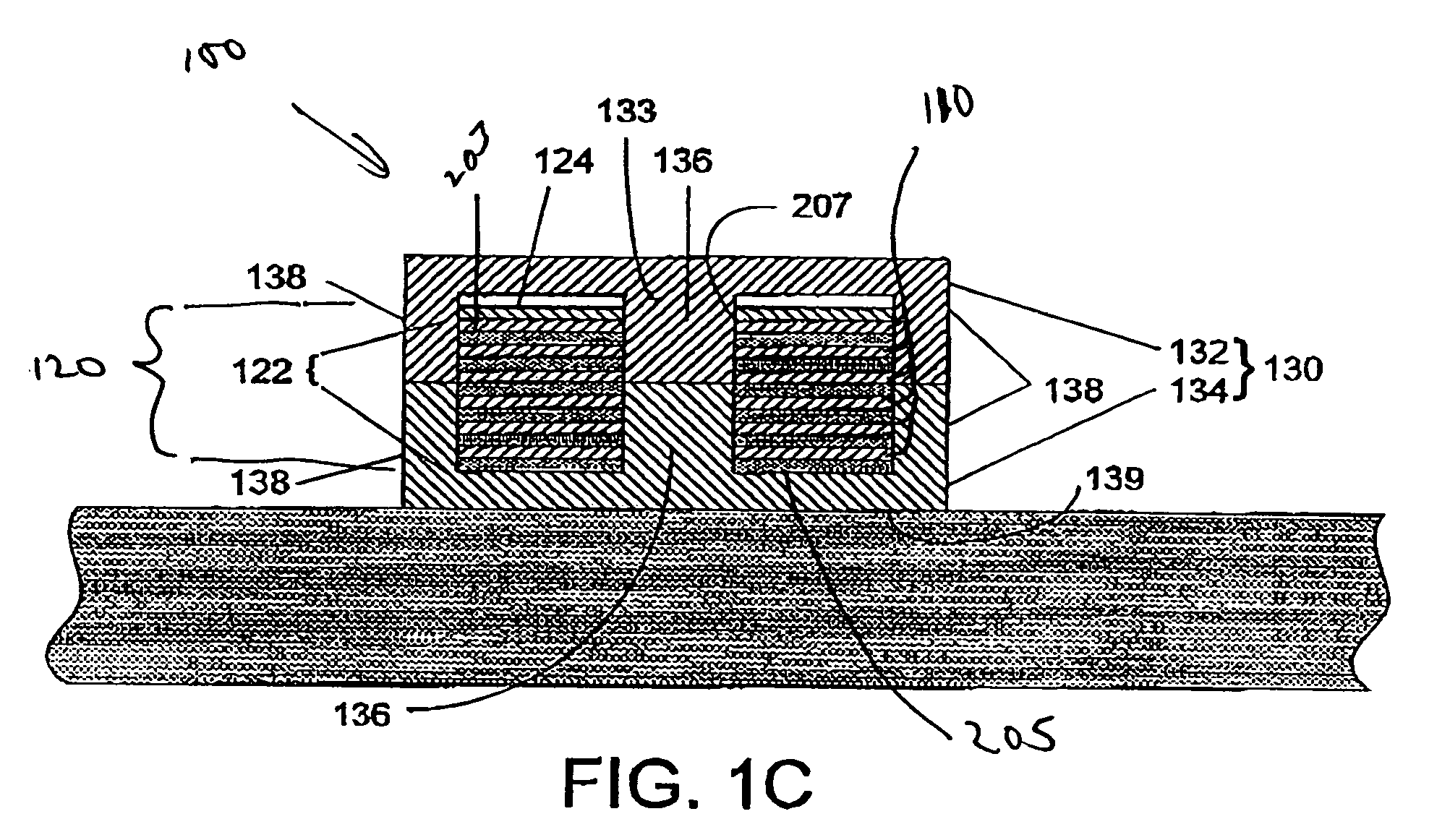Multi-layer printed circuit board inductor winding with added metal foil layers
a printed circuit board and inductor winding technology, applied in the direction of transformer/inductance magnetic core, printed electric component incorporation, electrical apparatus construction details, etc., can solve the problems of complex structure, high manufacturing cost, and inability to easily miniaturize or automate assembly, and achieve greater current and greater efficiency
- Summary
- Abstract
- Description
- Claims
- Application Information
AI Technical Summary
Benefits of technology
Problems solved by technology
Method used
Image
Examples
Embodiment Construction
[0035] To facilitate its description, the invention is described below in terms of inductors having windings whose turns are formed by traces, each of which are patterned on the surface of a different insulating layer of a multi-layer PCB, and wherein at least one winding turn includes two conductive layers that are not a PCB trace. In general, the present invention provides an electromagnetic component that is formed using a multi-layer PCB, where the component can comprise an inductor, including but not limited to power chokes, or the like.
[0036] The inventive PCB winding includes a plurality of conductive layers or traces wherein each conductive trace is formed on an insulating layer of said PCB and is positioned with respect to the other conductive traces such that the conductive traces form a stack. An additional conductive layer, such as a metal foil, is attached to an outer surface of the PCB. The additional conductive layer can form a separate loop of the winding, or can be...
PUM
| Property | Measurement | Unit |
|---|---|---|
| thickness | aaaaa | aaaaa |
| thickness | aaaaa | aaaaa |
| electromagnetic | aaaaa | aaaaa |
Abstract
Description
Claims
Application Information
 Login to View More
Login to View More - R&D
- Intellectual Property
- Life Sciences
- Materials
- Tech Scout
- Unparalleled Data Quality
- Higher Quality Content
- 60% Fewer Hallucinations
Browse by: Latest US Patents, China's latest patents, Technical Efficacy Thesaurus, Application Domain, Technology Topic, Popular Technical Reports.
© 2025 PatSnap. All rights reserved.Legal|Privacy policy|Modern Slavery Act Transparency Statement|Sitemap|About US| Contact US: help@patsnap.com



